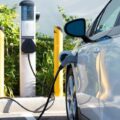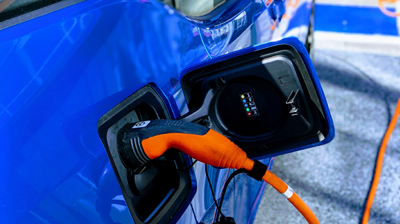
With the wholesale price of electricity falling in the UK, alongside the rising cost of petrol at the pumps, EV drivers are enjoying saving hundreds of pounds per year compared to drivers of conventional vehicles.
In a recent nationwide survey of drivers by Tusker, 79% of EV drivers stated that they chose an electric car in order to save money. Over the course of 2023 and into 2024, these savings have remained consistent and are only set to increase.
With 89% of EV drivers satisfied with their car, and 66% of petrol drivers wanting to order an EV in the next four years, costs are a key motivator for drivers to make the switch.
Oil prices have risen in the UK in 2023, driving the cost of petrol up to its current average of £1.56/ litre (RAC Fuel Report, 11/10/23) across the UK. The current uncertainty in the Middle-East is set to drive prices even higher in the coming months, which could be costly for drivers this autumn.
Conversely, the cost of EV charging has dropped by up to 19% at peak times, and 15% for off-peak charging, and with prices forecast to fall further (https://www.theaa.com/about-us/newsroom/aa-ev-recharge-report-august-2023). EV drivers can be confident their costs will not be going up for the foreseeable future.
In a like-for-like comparison, a driver of a VW Golf 1.5 TSI driving 10,000 miles per year would pay £1,491.39 in fuel, while a VW ID3 driving the same distance would cost just £741.35 in charging. That equates to a saving of £750.04.
Even if the ID3 driver charged exclusively at more expensive public rapid charging stations, the ID3 driver would still enjoy £255.39 in savings at the end of the same period.
Paul Gilshan (pictured), CEO of Tusker, commented: “Our survey has shown that our drivers value the cheaper running costs of EVs, and that value for money is a priority for many. These latest calculations show just how advantageous EVs can be when compared to petrol or diesel cars, and that is before the savings available through salary sacrifice have been considered.”
“While petrol prices have risen throughout the year, the ongoing decline in electricity costs has benefitted our drivers financially, and this looks set to continue. At the same time, the ongoing rapid expansion of the UK’s public charging network means that not only is it now cheaper to charge an electric car, it has also never been easier,” added Gilshan.
The Tusker Report can be read at: https://resources.tuskercars.com/view/1013470346/









